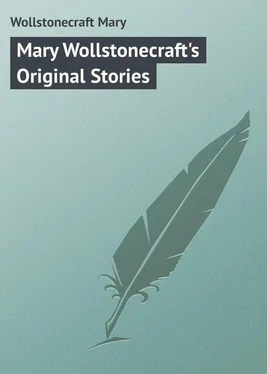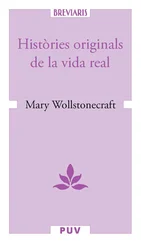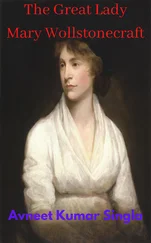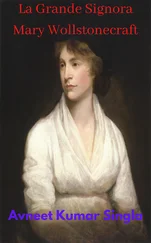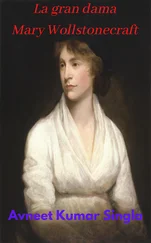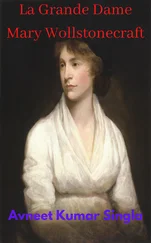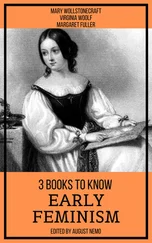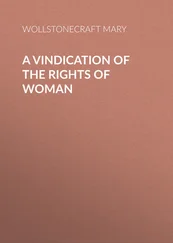Mary Wollstonecraft - Mary Wollstonecraft's Original Stories
Здесь есть возможность читать онлайн «Mary Wollstonecraft - Mary Wollstonecraft's Original Stories» — ознакомительный отрывок электронной книги совершенно бесплатно, а после прочтения отрывка купить полную версию. В некоторых случаях можно слушать аудио, скачать через торрент в формате fb2 и присутствует краткое содержание. Издательство: Иностранный паблик, Жанр: foreign_prose, на английском языке. Описание произведения, (предисловие) а так же отзывы посетителей доступны на портале библиотеки ЛибКат.
- Название:Mary Wollstonecraft's Original Stories
- Автор:
- Издательство:Иностранный паблик
- Жанр:
- Год:неизвестен
- ISBN:нет данных
- Рейтинг книги:3 / 5. Голосов: 1
-
Избранное:Добавить в избранное
- Отзывы:
-
Ваша оценка:
- 60
- 1
- 2
- 3
- 4
- 5
Mary Wollstonecraft's Original Stories: краткое содержание, описание и аннотация
Предлагаем к чтению аннотацию, описание, краткое содержание или предисловие (зависит от того, что написал сам автор книги «Mary Wollstonecraft's Original Stories»). Если вы не нашли необходимую информацию о книге — напишите в комментариях, мы постараемся отыскать её.
Mary Wollstonecraft's Original Stories — читать онлайн ознакомительный отрывок
Ниже представлен текст книги, разбитый по страницам. Система сохранения места последней прочитанной страницы, позволяет с удобством читать онлайн бесплатно книгу «Mary Wollstonecraft's Original Stories», без необходимости каждый раз заново искать на чём Вы остановились. Поставьте закладку, и сможете в любой момент перейти на страницу, на которой закончили чтение.
Интервал:
Закладка:
Wollstonecraft Mary
Mary Wollstonecraft's Original Stories
EDITOR’S INTRODUCTION
The germ of the Original Stories was, I imagine, a suggestion (in the manner of publishers) from Mary Wollstonecraft’s employer, Johnson of St. Paul’s Churchyard, that something more or less in the manner of Mrs. Trimmer’s History of the Robins , the great nursery success of 1786, might be a profitable speculation. For I doubt if the production of a book for children would ever have occurred spontaneously to an author so much more interested in the status of women and other adult matters. However, the idea being given her, she quickly wrote the book – in 1787 or 1788 – carrying out in it to a far higher power, in Mrs. Mason, the self-confidence and rectitude of Mrs. Trimmer’s leading lady, Mrs. Benson, who in her turn had been preceded by that other flawless instructor of youth, Mr. Barlow. None of these exemplars could do wrong; but the Mrs. Mason whom we meet in the following pages far transcends the others in conscious merit. Mrs. Benson in the History of the Robins (with the author of which Mary Wollstonecraft was on friendly terms) was sufficiently like the Protagonist of the Old Testament to be, when among Mrs. Wilson’s bees, ‘excessively pleased with the ingenuity and industry with which these insects collect their honey and wax, form their cells, and deposit their store’; but Mrs. Mason, as we shall see, went still farther.
It has to be remembered that the Original Stories were written when the author was twenty-nine, five years before she met Gilbert Imlay and six years before her daughter Fanny Imlay was born. I mention this fact because it seems to me to be very significant. I feel that had the book been written after Fanny’s birth, or even after the Imlay infatuation, it would have been somewhat different: not perhaps more entertaining, because its author had none of that imaginative sympathy with the young which would direct her pen in the direction of pure pleasure for them; but more human, more kindly, better. One can have indeed little doubt as to this after reading those curious first lessons for an infant which came from Mary Wollstonecraft’s pen in or about 1795, (printed in volume two of the Posthumous Works , 1798), and which give evidence of so much more tenderness and reasonableness (and at the same time want of Reason, which may have been Godwin’s God but will never stand in that relation either to English men or English children) than the monitress of the Original Stories , the impeccable Mrs. Mason, ever suggests. I know of no early instance where a mother talks down to an infant more prettily: continually descending herself to its level, yet never with any of Mrs. Mason’s arrogance and superiority. Not indeed that this poor mother, with her impulsive warm heart wounded, and most of her illusions gone, and few kindly eyes resting upon her, could ever have compassed much of Mrs. Mason’s prosperous self-satisfaction and authority had she wished to; for in the seven years between the composition of the Original Stories and the lessons for the minute Fanny Imlay, she had lived an emotional lifetime, and suffering much, pitied much.
In Lesson X, which I quote, although it says nothing of charity or kindness, a vastly more human spirit is found than in any of Mrs. Mason’s homilies on our duty to the afflicted: —
See how much taller you are than William. In four years you have learned to eat, to walk, to talk. Why do you smile? You can do much more, you think: you can wash your hands and face. Very well. I should never kiss a dirty face. And you can comb your head with the pretty comb you always put by in your own drawer. To be sure, you do all this to be ready to take a walk with me. You would be obliged to stay at home, if you could not comb your own hair. Betty is busy getting the dinner ready, and only brushes William’s hair, because he cannot do it for himself.
Betty is making an apple-pye. You love an apple-pye; but I do not bid you make one. Your hands are not strong enough to mix the butter and flour together; and you must not try to pare the apples, because you cannot manage a great knife.
Never touch the large knives: they are very sharp, and you might cut your finger to the bone. You are a little girl, and ought to have a little knife. When you are as tall as I am, you shall have a knife as large as mine; and when you are as strong as I am, and have learned to manage it, you will not hurt yourself.
You can trundle a hoop, you say; and jump over a stick. O, I forgot! – and march like men in the red coats, when papa plays a pretty tune on the fiddle.
Even a very little of the tender spirit that this lesson breathes, even a very little of its sense of play, would have leavened the Original Stories into a more wholesome consistency. As it stands, that book is one of the most perfect examples of the success with which, a century or more ago, any ingratiating quality could be kept out of a work for the young. According to William Godwin, his unhappy wife had always a pretty and endearing way with children. Yet of pretty and endearing ways, as of humour, I take him to have been a bad judge; for I do not think that any woman possessing enough sympathy to attach children to her as he, in one of the most curious biographies in the language, assures us that she had, could have suppressed the gift so completely in her first book for young minds. And the Mrs. Masonic character of her own Preface supports my view.
I do not wish to suggest that previous to 1787 Mary Wollstonecraft had been a stranger to suffering. Far from it. Her life had known little joy. Her father’s excesses, her mother’s grief and poverty, her sister’s misfortunes, her own homelessness, and, to crown all, the death of her close friend Frances Blood, must have dimmed if not obliterated most of her happy impulses. But it is one thing to suffer bereavement and to be anxious about the troubles of others near and dear; and it is quite another to suffer oneself by loving, even to a point of personal disaster, and then losing both that love and the friendliness (such as it was) of the world. Imlay’s desertion and the birth of Fanny were real things beside which a drunken father, unhappy sisters, and a dead friend were mere trifles.
This little book is to my mind chiefly interesting for two reasons apart from its original purpose – for the light it throws on the attitude of the nursery authors of that day towards children, and for the character of Mrs. Mason, a type of the dominant British character, in petticoats, here for the first time (so far as my reading goes) set on paper.
I have no information regarding the success of the Original Stories in their day, and such spirited efforts as are now made to obtain them by collectors are, we know, due rather to Blake than to Mary Wollstonecraft; but any measure of popularity that they may have enjoyed illustrates the awful state of slavery in which the children of the seventeen-nineties must have subsisted. It is indeed wonderful to me to think that only a poor hundred years ago such hard and arid presentations of adult perfection and infantile incapacity should have been considered, even by capable writers, all that the intelligence of children needed or their tender inexperience deserved. I do not deny that children are not to-day too much considered: indeed, I think that they are: I think there is now an unfortunate tendency to provide them with literature in such variety as to anticipate, and possibly supplant, the most valuable natural workings of their minds in almost every direction; but such activity at any rate indicates a desire on the part of the writers of these books to understand their readers, whereas I can detect none in the Original Stories or in hundreds of kindred works of that day. Sandford and Merton and Mrs. Trimmer’s book stand apart: there is much humanity and imaginative sympathy in both; but with the majority of nursery authors, to fling down a collection of homilies was sufficient.
Читать дальшеИнтервал:
Закладка:
Похожие книги на «Mary Wollstonecraft's Original Stories»
Представляем Вашему вниманию похожие книги на «Mary Wollstonecraft's Original Stories» списком для выбора. Мы отобрали схожую по названию и смыслу литературу в надежде предоставить читателям больше вариантов отыскать новые, интересные, ещё непрочитанные произведения.
Обсуждение, отзывы о книге «Mary Wollstonecraft's Original Stories» и просто собственные мнения читателей. Оставьте ваши комментарии, напишите, что Вы думаете о произведении, его смысле или главных героях. Укажите что конкретно понравилось, а что нет, и почему Вы так считаете.
